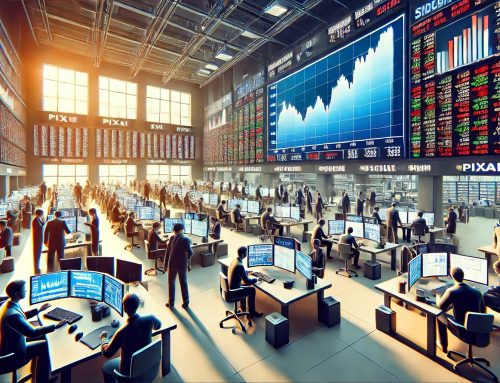July 4, 2022
French economic outlook
The business climates from the business tendency surveys remain favourable in June, above their average level for both the overall climate and the sectoral climates, except in retail trade. They point to an overall increase in activity for the coming months, even if the composite indicator levels may eventually be adjusted: they partly reflect the automatic rebound after the Omicron wave (especially in certain services) and some particularly high balances of opinion regarding expected prices, especially in building construction (as an increase in prices is usually favourable from the point of view of business leaders).
At sector level activity is therefore likely to be driven by relatively sustained growth in market services in Q2 2022, in contrast to Q1, whereas manufacturing industry looks set to see a downturn after a dynamic Q1 . In services, several sub-sectors are still well below their pre-health crisis level and thus have the potential for catch-up : this is particularly the case for accommodation and catering, which are expected to rebound strongly, after a notable decline in Q1 due to the Omicron wave. The transport sector should also remain dynamic. In trade, however, the situation is expected to deteriorate further in Q2, in line with a drop in household consumption of goods, and consistent with signals from the latest business tendency surveys. Similarly, in industry, production is expected to fall back: this is because the majority of manufacturing branches appear to be penalised by problems with supply (Focus on responses from business leaders on the consequences of the war in Ukraine). This is the case in agrifood, for example, and capital goods. Finally, activity in construction is expected to be a little more buoyant than in Q1. In H2, some of these sectoral contrasts are expected to persist, with growth in activity driven mainly by market services, albeit with a slight slowdown after the catch-up in the previous quarter. Industry and construction are expected to rebound only modestly, given the continuing difficulties with supply.
These forecasts remain strongly dependent on possible changes in the various difficulties in terms of supply chains, prices and also hiring. In particular, a gradual easing of these difficulties would be a positive factor for industrial activity. However, if the war in Ukraine continues, or if economic sanctions and reprisals by Russia were to worsen, then this could continue to exacerbate these difficulties, firstly over commodity prices (energy, agricultural products, etc.). In addition, the health situation in China remains an area for vigilance, given their “zero-Covid” strategy which could have a significant impact on global value chains. On the domestic front, uncertainty persists regarding the behaviour of households in the face of new economic conditions, with high infl ation but also measures in place to support purchasing power.
Source: French National Institute of Statistics
Legal Notice: The information in this article is intended for information purposes only. It is not intended for professional information purposes specific to a person or an institution. Every institution has different requirements because of its own circumstances even though they bear a resemblance to each other. Consequently, it is your interest to consult on an expert before taking a decision based on information stated in this article and putting into practice. Neither Karen Audit nor related person or institutions are not responsible for any damages or losses that might occur in consequence of the use of the information in this article by private or formal, real or legal person and institutions.






